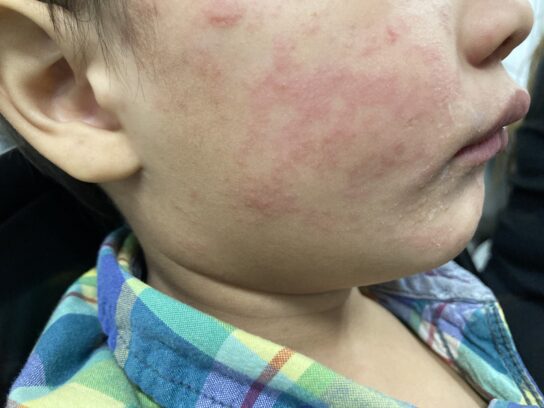
Nationwide, the measles outbreak shows no signs of slowing down. The latest report from the Centers for Disease Control and Prevention (CDC) shows measles has infected more than 600 people in 21 states and the District of Columbia. Officials say about 97% of the people infected were unvaccinated or their vaccination status was unknown.
MCM spoke with Dr. Fabian Sandoval who is President and Chief Executive Officer of Emerson Clinical Research Institute in Washington, D.C. He said the best way to prevent getting measles is for people to get the Measles, Mumps, and Rubella (MMR) vaccine.
Maryland has three cases so far this year, one in Howard County, and two more in Prince George’s County. State health officials say each of the patients in Maryland traveled internationally. The Maryland cases are not related to each other nor are they connected to the bigger outbreaks occurring in places like Texas and New Mexico. So far, no one in Montgomery County has contracted measles. Last year, the County had one case.
County Immunity Levels
MCM spoke with Montgomery County Health Officer, Dr. Kisha Davis. She said the vaccination rate for measles in children is well over 97% in the County.
“It toggles between 97% and 98%. The rate we want to get at for herd immunity is 95%, so we are well above that in both private and public schools. That is very reassuring,” Davis said.
Vulnerable Groups
However, she cautions some groups remain vulnerable to contracting measles. They include children under a year old, people who are severely immunocompromised, and people who are unvaccinated.
Children can get their first MMR dose when they are between 12 and 15 months old. They usually get their second dose between 4 and 6 years old. Doctors say one dose is 93% effective at preventing measles. Two doses are 97% effective.
Older adults who may not know if they had measles as a child or are unsure if they ever had a measles vaccine can get tested to see if they have immunity.
“I think it is important to think about this area. We live in an area where folks travel a lot. I think in your day-to-day life, you’re not really at high risk of contracting measles here because we have high vaccination rates. But if you are going abroad, and maybe questioning your vaccination status, I think you should have a conversation with your doctor about being vaccinated,” Davis said.
Travel Advice
Dr. Alexandra Yonts is an infectious disease specialist with Children’s National Hospital. She had the following tips for people who may be traveling either in the United States or abroad:
- Check vaccination records for all family members
- Check with your pediatrician to confirm your children have received their age-appropriate doses of the MMR vaccine
- Check the CDC’s Yellow Book: Health Information for International Travel to see if there are any outbreaks or circulating virus where you are heading
- Adults born before 1957 are generally considered immune from measles, but people born after should verify their vaccination status
- Consult your pediatrician about your travel plans. Some children under 1 may be able to get an MMR vaccine before their scheduled vaccine date if they are traveling to a high-risk area
- Keep in mind it takes about 2 weeks to develop adequate measles immunity after the vaccine
- Pack hand sanitizer, disinfectant wipes, and extra masks
- Once you reach your destination, practice vigorous hand hygiene
- Avoid close contact with people showing signs of illness

